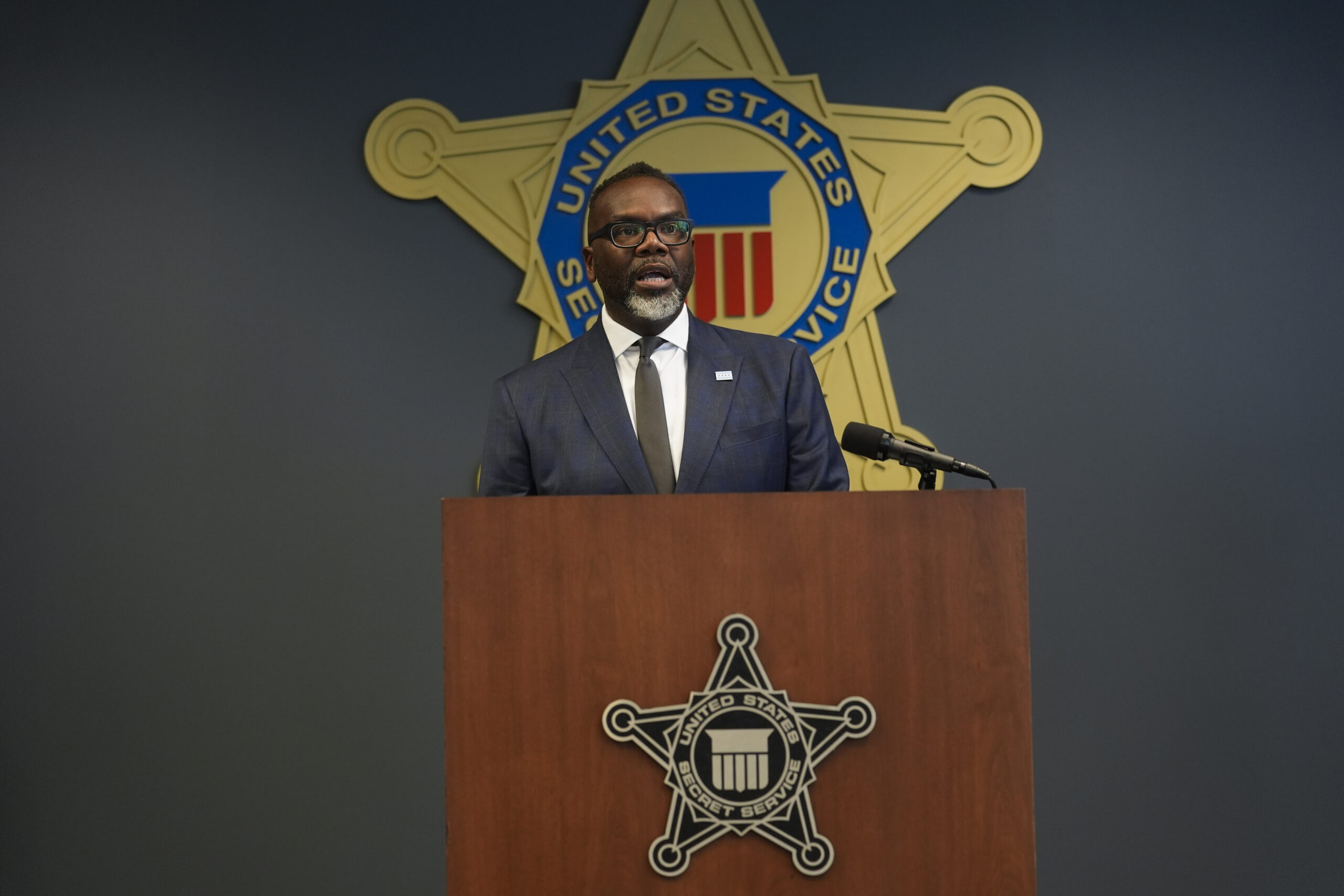New York – A proclamation by Chicago Mayor Brandon Johnson this week calls for a Constitutional Status Assembly to be promoted as part of a process of self-determination in Puerto Rico, rather than a plebiscite with congressional approval as proposed in the “Puerto Rico Status Act” with versions in both the House and Senate.
On Thursday, the mayor of the Windy City backed the call made by the City Council in a resolution about two months ago.
According to Johnson, the above mechanism is a fair, transparent and inclusive one to ensure that all Puerto Rican sectors are heard regarding the status issue.
“The bill on the status of Puerto Rico proposes a process to determine the political future of Puerto Rico that does not adequately provide a fair, transparent and inclusive mechanism to ensure that all voices within Puerto Rican society are heard and respected,” reads the proclamation adopted by the Mayor’s Office, as cited by El Nuevo Día.
The mayor’s call was made official on Thursday, July 25, the same day as the 126th anniversary of the U.S. invasion of Puerto Rico, which coincides with the celebration of the 72nd anniversary of the Constitution of the Commonwealth of Puerto Rico (ELA), the system of government that operates in the territory.
City Councilwoman Jessie Fuentes, who represents neighborhoods like Humboldt Park with a large Puerto Rican presence, was the one who presented the resolution.
The document was unanimously approved by the 50 members of the Council on May 22.
What is the Puerto Rico Self-Determination Act?
Specifically, the text refers to opting for a process such as the one contained in the Puerto Rico Self-Determination Act (HR2070), represented in March 2021.
The 2070 summary indicates that Puerto Rico’s legislature has the authority to convene a Constitutional Status Assembly to resolve the island’s political status. Additionally, the bill provides provisions for public financing of an election of the delegates who would compose the body, and establishes a Congressional Bilateral Negotiation Commission to advise the delegates who form part of the group. These delegates would discuss valid status options and draft a transition plan for each of the self-determination options other than the current territorial agreement (ELA).
The Council’s resolution explains that the endorsement of the Puerto Rico Self-Determination Act was based on the principle of self-determination, which is a cornerstone of international law, enshrined in the United Nations Charter, which guarantees all persons the right to freely determine their political status.
The endorsement also responds to the fact that, in various referendums and public expressions, Puerto Ricans have “clearly” demonstrated their desire to resolve the political status of the island.
For the undersigned, “the Puerto Rico Status Act” that was introduced in the United States Congress, has raised concerns among many Puerto Ricans and their allies regarding the approach to resolve the future political status of the island.”
In this regard, the politicians state in the resolution that they have concerns about aspects such as language in the island’s government instrumentalities, transition, taxes, representation of Puerto Rico separate from the US in the Olympics, citizenship, among others, due to the alleged lack of critical information in the bill.
In contrast, according to Chicago council members, the Puerto Rico Self-Determination Act proposes a “constructive” approach for Puerto Ricans to exercise their right to self-determination in a democratic, inclusive and participatory manner.
Before the first version of the Puerto Rico Status Act (HR 8393) was approved by the Democratic majority and some Republicans in the House in December 2022, New York representatives such as Nydia Velázquez and Alexandria Ocasio Cortez and others as well as leaders in the Senate pushed for the Puerto Rico Self-Determination Act or HR 2070.
However, negotiations between the Resident Commissioner in Washington DC, Jenniffer González and Velázquez led to a consensus that resulted in the presentation by both of 8393.
New versions of the bill were filed last year in both the House and Senate, HR 2757 and S.3231, respectively.
Mississippi Republican Senator Roger Wicker also presented his bill, but with the inclusion of the ELA (Free Associated State), the current system of government in Puerto Rico.
In the rest of the legislations, ELA is not found as an alternative due to its territorial nature.
However, none of the bills have made progress in the legislative process to be put to a vote in committee prior to potential approval by the full body.
Bill 3231, filed by Martin Heinrich, a Democrat from New Mexico, has 26 co-sponsors, none of whom are Republicans.
In the case of 2757, it has 97 co-sponsors, 13 of them Republicans.
Keep reading:
Chicago’s Humboldt Park is officially the “Pueblo de Puerto Rico” under Illinois’ Designated Cultural Districts program
“Power 4 Puerto Rico” argues that the Democratic platform is not democratic in terms of the status plebiscite
Senator Charles Schumer and his reasons for co-sponsoring bill 3231 for a status plebiscite in Puerto Rico
Democratic Senator Catherine Cortez Masto will reschedule a hearing in a subcommittee for the status plebiscite in Puerto Rico
